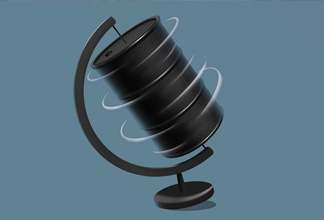You CAN Be Too Keen With Your To-Do List
Written by Rita Silvan
Published on November 13, 2019
minute read
Share:
Do you pack for a vacation weeks in advance? Do you reply immediately to texts, phone calls and emails? Do you pay your bills as soon as they arrive? Congratulations! You're a precrastinator.
The term precrastinator, believed to have been coined in 2014, describes someone who rushes through life getting things done, all the while ticking mental or actual check marks next to a never-ending to-do list.
Precrastinators tend to get full marks in these areas:
- Never missing a deadline
- Identifying an issue before it becomes a problem
- Getting the job done and doing their fair share in team efforts
However, precrastination comes with cons, too. While precrastinators are busy tackling sub-goals, they risk missing out on the bigger (and potentially better) goals that may be far more important. By picking off the low-hanging fruit — the small tasks that give them an immediate payoff of psychological satisfaction and emotional tension release — they're left with less time and energy to achieve other things. Precrastination could have implications for investors who may occupy themselves with "busy work," such as keeping up with business news headlines, in lieu of stepping back to contemplate their personal financial goals and how they plan to achieve them.
Why do we precrastinate?
Precrastination research reveals that humans have a bias toward physical activity over mental activity. No doubt this will be familiar to anyone who has had a big work presentation to prepare for the following day, but instead spends more time on menial household chores like reorganizing the sock drawer.
For investors, an urge to act rather than think might lead to executing trades without having looked at bigger-picture items such as their portfolio's asset allocation or their risk-management strategies. Sometimes our activities become so reflexive that we may forget the original purpose of why we're doing them in the first place.
Another catalyst to precrastination is the feeling of time pressure; we want to cross chores off as quickly as possible. The most tempting way to do this is by taking on the small tasks, even though they may be less important. Completing tasks not only pings the reward centre in our brains, it also frees up space in our working memory, as we now have to remember fewer tasks.
The downside of precrastination is we may rush through our work to reach the finish line first and risk making errors along the way that we need to go back and fix. In terms of investing, that might mean jumping the gun on an idea before we have all the necessary information and a clear game plan.
How can investors find the happy balance between procrastinating and precrastinating?
As a precrastinator who loves to see a long column of check marks at the end of the day, before I dive into any task I now mentally ask if it's urgent and important.
If I answer "yes" to both, the task stays on the list. If it's important but not urgent, let's say to review an insurance policy, then I set an appointment time to do it. This way, I'm not rushing through critical tasks just for the check mark.
Finally, here's one more task precrastinators might want to add to their to-do lists: Stop and smell the roses. It's great to be prepared for the future, but what's the rush?
RBC Direct Investing Inc. and Royal Bank of Canada are separate corporate entities which are affiliated. RBC Direct Investing Inc. is a wholly owned subsidiary of Royal Bank of Canada and is a Member of the Canadian Investment Regulatory Organization and the Canadian Investor Protection Fund. Royal Bank of Canada and certain of its issuers are related to RBC Direct Investing Inc. RBC Direct Investing Inc. does not provide investment advice or recommendations regarding the purchase or sale of any securities. Investors are responsible for their own investment decisions. RBC Direct Investing is a business name used by RBC Direct Investing Inc. ® / ™ Trademark(s) of Royal Bank of Canada. RBC and Royal Bank are registered trademarks of Royal Bank of Canada. Used under licence.
© Royal Bank of Canada 2025.
Any information, opinions or views provided in this document, including hyperlinks to the RBC Direct Investing Inc. website or the websites of its affiliates or third parties, are for your general information only, and are not intended to provide legal, investment, financial, accounting, tax or other professional advice. While information presented is believed to be factual and current, its accuracy is not guaranteed and it should not be regarded as a complete analysis of the subjects discussed. All expressions of opinion reflect the judgment of the author(s) as of the date of publication and are subject to change. No endorsement of any third parties or their advice, opinions, information, products or services is expressly given or implied by RBC Direct Investing Inc. or its affiliates. You should consult with your advisor before taking any action based upon the information contained in this document.
Furthermore, the products, services and securities referred to in this publication are only available in Canada and other jurisdictions where they may be legally offered for sale. Information available on the RBC Direct Investing website is intended for access by residents of Canada only, and should not be accessed from any jurisdiction outside Canada.
Explore More

What Investors Can Learn from Hockey Star and RBC Olympian Sarah Nurse
Nurse's path to the podium reveals how preparation, planning and practice can turn potential into a golden opportunity
minute read

Crude Questions? A Look at Canada’s Oil Economy
What you need to know about Canada’s oil industry
minute read

How Inflation-Proof Are Your Investments?
Why inflation still matters – and how to stay ahead of it
minute read
Inspired Investor brings you personal stories, timely information and expert insights to empower your investment decisions. Visit About Us to find out more.







